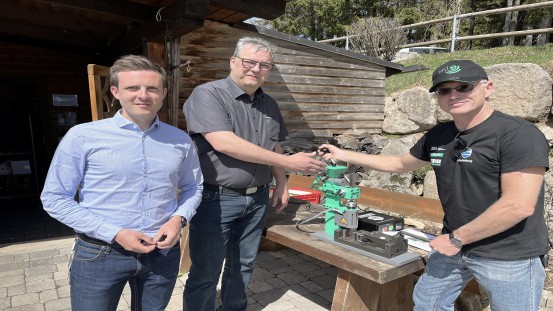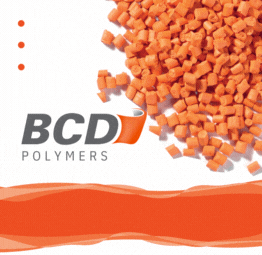“We are committed to this project because sustainability and a careful approach to the environment and water resources are enormously important,” explained Bertram Stern, Sustainability Manager at Arburg. “Also, and particularly in our capacity as a manufacturer of machines for plastics processing, we want to draw attention to the fact that plastic is not waste, but a valuable material that must be collected, recycled and reused.”
Ten countries, one goal: A plastic-free Danube
The Danube alone washes over four tonnes of plastic into the Black Sea every day, much of it in the form of microplastics. In the course of his swim over a distance of around 2,700 kilometres, Professor Andreas Fath, accompanied by a boat, will cross ten countries – including Germany, Austria, Slovakia and Hungary.
At stations along the route, he and his team will use group learning activities and a mobile knowledge workshop to draw attention to the Danube’s pollution. There will also be a variety of campaigns such as clean-ups, swim-alongs and paddling activities and lectures at the individual stage destinations. Water samples will be regularly analysed in a mobile laboratory and published on the project website www.cleandanube.org. The website also features an overview of the individual stages and live tracking. This transnational project is supported by powerful sponsors. The three main sponsors are Arburg, a leading global manufacturer of machines for plastics processing, Hansgrohe, internationally renowned manufacturer of products for bathrooms and kitchens, and the non-profit association “Menschen brauchen Menschen e.V.”, sponsored by Deutsche Vermögensberatung.
Injection moulding machine on tour – recycling made tangible
Accompanying Professor Andreas Fath on his swim will be a small single-lever injection moulding machine from Arburg, which will then be retained for teaching purposes. The machine is modelled on the very first injection moulding model made by former company bosses Eugen and Karl Hehl and took a team of five trainees around 1,000 hours to recreate at the company headquarters in Lossburg. At the various stages, visitors will be able to use it to make their own shopping trolley chips from recycled plastic (polypropylene). The example shows that plastic products such as cups, bottles and packaging can be collected by type after use, recycled and ultimately find a new use as durable products. At the individual stations, the project team will also have gym bags made from recycled PET bottles that can be filled with material donations for children from Ukraine – which was also originally a stage destination.
arburgGREENworld: Commitment to sustainability
Within the framework of the “arburgGREENworld” programme, Arburg is pursuing a consistently sustainable strategy and is working intensively on topics ranging from the circular economy, energy and resource efficiency and carbon footprints to digitalisation and strategic partnerships with universities, associations and institutions. The global company headquartered in Lossburg in the northern Black Forest has published fascinating facts, figures and data in its interactive sustainability report (www.arburg.com/en/arburggreenworld).



